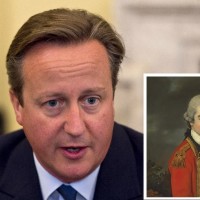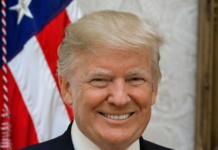Prime Minister David Cameron was forced to confront his own family’s role in the Slave Trade on a visit to Jamaica this week.

The PM arrived at Norman Manley International airport in the island’s capital, Kingston, promising a £200 million infrastructure aid boost to “reinvigorate” ties with the former British West Indies region – with UK firms set to compete to build roads, ports and bridges.
He said the cash would make the UK the largest individual donor to the region and that he wanted to concentrate on future relations between the countries not on centuries-old issues.
But his mission was at risk of being overshadowed by a row over whether the former colonial power should apologise and make financial amends for historic slavery.
Jamaican Prime Minister, Portia Simpson-Miller, said she had raised the controversial question during one-to-one talks with the PM at her official residence in Kingston. She said she told him that while she was “aware of the obvious sensitivities”, Jamaica was “involved in a process under the auspices of the Caribbean Community to engage the UK on the matter”.
Mr Cameron made no mention of the issue after the talks – but Number 10 said he had made clear to his opposite number that he “understood it was an issue for some people”. However he “reiterated the long-standing position of the United Kingdom that we do not believe reparations is the right approach”.
Speaking to reporters on the flight to the Caribbean, Mr Cameron made clear he did not want to focus on the issue.
“This is about the future relationship and about what we should be doing together economically in terms of trade and investment and this significant infrastructure fund I am announcing,” he said.
“So that is what the visit is about, it’s talking about the future.”
One Jamaican MP has threatened to boycott the PM’s speech at the country’s parliament if he does not engage on the issue.
Bert Samuels, a member of Jamaica’s National Commission on Reparations, told Television Jamaica: “His lineage has been traced and his forefathers were slave-owners and benefited from slavery. Therefore he needs to atone, to apologise personally and on behalf of his country.”
He said his countrymen had been “left behind because of racism” and should now be compensated.
The issue of slave-owning nations compensating former colonies for the trade is a hot one in the Caribbean, where national commissions have calculated the sums could run into trillions of dollars. One suggestion has been that the money could be provided in the form of debt relief.
Mrs Simpson Miller told the United Nations in 2013 there should be “an international discussion in a non-confrontational manner” and its parliament had passed a motion backing reparations.
Jamaican MP Mike Henry told The Gleaner newspaper “If it is not on the agenda, I will not attend any functions involving the visiting Prime Minister, and I will cry shame on those who do, considering that there was not a dissenting voice in the debate in Parliament.”
Critics have pointed to compensation paid to one of Mr Cameron’s own ancestors for the slaves he lost when slavery was abolished in 1834 as a reason he should personally apologise. Records show General Sir James Duff, an army officer, MP and Mr Cameron’s first cousin six generations removed, was compensated to the tune of £4,101 when he forfeited 202 slaves on the Grange Sugar Estate in Jamaica – equal to more than £3m today.
Mr Cameron was less evasive about the £25 million Britain will spend on a new prison in Jamaica so hundreds of criminals can be sent home to the Caribbean rather than serve their sentences in the UK. The cash, which will come from the UK’s foreign aid budget, has been agreed to help break the deadlock in lengthy negotiations over a compulsory prisoner transfer deal between the two countries.
More than 600 Jamaican nationals behind bars in Britain cannot be repatriated because of fears that poor jail conditions on the island would lead to successful challenges under human rights law.









